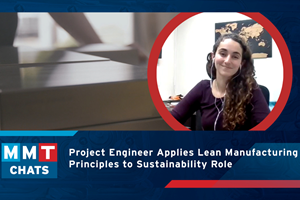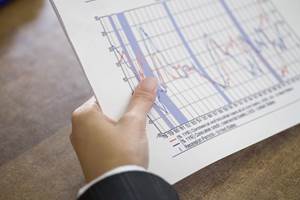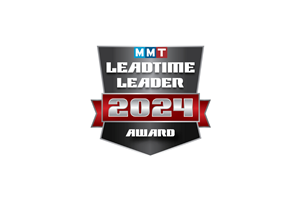Do You Know about Section 232?
Here is an update on Trump's steel and aluminum tariffs via Section 232 Tariffs on Aluminum and Steel: Additional Duty on Imports of Steel and Aluminum Articles under Section 232 of the Trade Expansion Act of 1962. This update cites the exemptions announced on March 23, 2018.
After speaking with some tool steel suppliers, I was given some insight into the recent Section 232 Report that hit the desk of the President earlier this year, which may impact moldmakers. Section 232 of the 1962 Trade Act allows the president to impose tariffs without congressional approval, which involves steel and aluminum imports.
I then provided some key facts from the report to consider, but below is an update provided on the DHS site, citing the exemptions.
Section 232 Tariffs on Aluminum and Steel
BACKGROUND:
On March 8, 2018, the President issued Proclamations 9704 and 9705 on Adjusting Imports of Steel and Aluminum into the United States, under Section 232 of the Trade Expansion Act of 1962, as amended (19 U.S.C. 1862), providing for additional import duties for steel mill and aluminum articles, effective March 23, 2018. See the Federal Register, 83 FR 11619 and 83 FR 11625, March 15, 2018. On March 22, 2018, the President issued Proclamations on Adjusting Imports of Steel and Aluminum into the United States.
These duty requirements are effective with respect to goods entered, or withdrawn from warehouse for consumption, on or after 12:01 a.m. eastern daylight time on March 23, 2018.
COMMODITY:
Steel mill and aluminum articles, as specified in the Presidential Proclamations.
COUNTRIES COVERED:
March 23, 2018 through April 30, 2018: All countries of origin except Canada, Mexico, Australia, Argentina, South Korea, Brazil and member countries of the European Union (Austria, Belgium, Bulgaria, Croatia, Cyprus, Czech Republic, Denmark, Estonia, Finland, France, Germany, Greece, Hungary, Ireland, Italy, Latvia, Lithuania, Luxembourg, Malta, Netherlands, Poland, Portugal, Romania, Slovakia, Slovenia, Spain, Sweden and the United Kingdom).
As of May 1, 2018: All countries of origin.
Please note this is based on the country of origin, not the country of export.
ENTRY SUMMARY FILING INSTRUCTIONS:
Steel Products
In addition to reporting the regular Chapters 72 & 73 of the Harmonized Tariff Schedule (HTS) classification for the imported merchandise, importers shall report the following HTS classification for imported merchandise subject to the additional duty:
9903.80.01 (25 percent ad valorem additional duty for steel mill products)
Aluminum Products
In addition to reporting the regular Chapter 76 of the HTS classification for the imported merchandise, importers shall report the following HTS classification for imported merchandise subject to the additional duty:
9903.85.01 (10 percent ad valorem additional duty for aluminum products)
Importers and filers failing to submit the required Chapter 99 HTS classifications with the entry summary information for imports under the specified Chapter 72, 73, and 76 HTS classifications for the covered countries of origin will receive the following reject messages:
E1 IQ10 LINE SUBJECT TO QUOTA
E1 FQ09 QUOTA NOT ALLOWED FOR ENTRY TYPE
E1 FQ05 BANNED IMPORT
E1 RF998 TRANSACTION DATA REJECTED
Note: Quota is not in effect, but this ACE functionality is being used to validate entry summary transmissions and reject when validations determine the data is missing the required chapter 99 number.
Importers or filers receiving one of the reject messages above, who have researched their classification and dates to confirm the entry summaries were incorrectly rejected, should contact their assigned Client Representative with the results of their review.
Additional Information
Any steel or aluminum article subject to the Section 232 duties that is admitted into U.S. foreign trade zones on or after 12:01 a.m. eastern daylight time on March 23, 2018, must be admitted as “privileged foreign status” as defined in 19 CFR 146.41, and will be subject upon entry for consumption to any ad valorem rates of duty related to the classification under the applicable HTSUS subheading.
Any steel or aluminum article that was admitted into U.S. foreign trade zones under "privileged foreign status" as defined in 19 CFR 146.41, prior to 12:01 a.m. eastern daylight time on March 23, 2018, will likewise be subject upon entry for consumption to any ad valorem rates of duty related to the classification under applicable HTSUS subheadings imposed by the Proclamations.
The merchandise covered by the additional duties may also be subject to antidumping and countervailing duties.
CBP will issue additional guidance on entry requirements for any products excluded from these measures, as soon as information is available. CBP will also issue updated guidance if there are any changes to these measures, including any changes to exempted countries and any new requirements, such as quota requirements.
FOR FURTHER INFORMATION:
For more information, please refer to the Presidential Proclamations on Adjusting Imports of Steel and Aluminum into the United States, Federal Register, 83 FR 11619 and 83 FR 11625, March 15, 2018; and the March 22, 2018 Presidential Proclamations on Adjusting Imports of Steel and Aluminum into the United States.
Questions related to Section 232 entry filing requirements should be emailed to adcvdissues-hq@cbp.dhs.gov. Questions from the importing community concerning ACE rejections should be referred to their Client Representative.
Related Content
MMT Chats: Project Engineer Applies Lean Manufacturing Principles to Growing Sustainability Role
MoldMaking Technology Editorial Director Christina Fuges catches up with MMT’s 30-Under-30 Honoree Katherine Pistorius, who has added Regional Sustainability Coordinator alongside her Project Engineer duties, which demonstrates the many paths one can take in a manufacturing career. Here she shares how this opportunity unfolded for her and what the job entails today and in the future. This episode is brought to you by ISCAR with New Ideas for Machining Intelligently.
Read MoreU.S. Economic Fundamentals Impacting Moldmaking
The economy continues to downshift, capping growth in moldmaking.
Read MoreFAQs: What Are the Leadtime Leader Awards?
Here are answers to some frequently asked questions about MoldMaking Technology's annual Leadtime Leader Awards competition.
Read MoreTop 10 Topics to Cover During an ISO 9001 Manufacturing Audit
Take a look at this practical hands-on approach to conducting a quality audit.
Read MoreRead Next
Are You a Moldmaker Considering 3D Printing? Consider the 3D Printing Workshop at NPE2024
Presentations will cover 3D printing for mold tooling, material innovation, product development, bridge production and full-scale, high-volume additive manufacturing.
Read MoreHow to Use Continuing Education to Remain Competitive in Moldmaking
Continued training helps moldmakers make tooling decisions and properly use the latest cutting tool to efficiently machine high-quality molds.
Read MoreHow to Use Strategic Planning Tools, Data to Manage the Human Side of Business
Q&A with Marion Wells, MMT EAB member and founder of Human Asset Management.
Read More




















